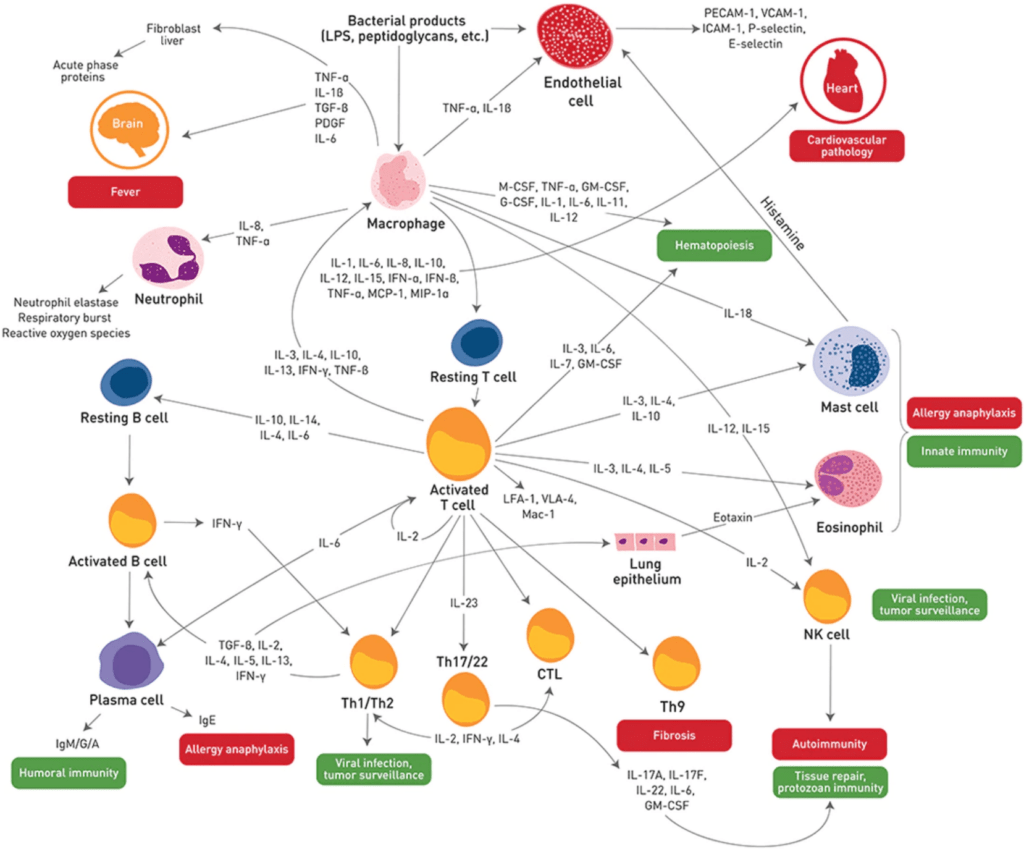You’ve likely heard that all that bad stuff you occasionally enjoy causes inflammation in your body.
These sales pitches are usually tied to trying to gain followers to sell you books, online consultations, juice cleanses, and other supplements to fight the boogie man.
In this week’s newsletter, I’ll attempt to provide a simple definition for inflammation so you’ll know how to assess these claims and distinguish fact from fiction.
I’ll mention that I spent a lot of time in graduate school immersed in inflammation as part of my graduate research, so I promise this is not just bro-science.
INFLAMMATION & IMMUNITY
Basically, inflammation is the body’s communication tool to fight against bad things. They are messengers designed to defend against foreign invaders, viruses and bacteria, various chemicals, and tissue injury.
Inflammation tells the body to do things like attack invaders, clot off and increase blood to damaged areas, gather immune cells, remake and remodel tissue, and it promotes pain and can make you feel crummy.
You’re likely familiar with the pain, redness, and swelling that goes with inflammation, but what’s not seen is the complex chain of events going on within the body.
When the body needs to defend itself, the cells send out “inflammatory” messengers to say something is wrong. The response starts with a quick and nonselective fight against anything in the affected area.
Typical inflammation activates immune cells called macrophages from being low-key to big and mean attackers designed to destroy things, including good things along with the bad stuff. The activated macrophages then send out more messages to gather help from other immune cells that get more specific in their response.
In total, inflammation “walls off” the area, kills off the bad stuff, and stimulates tissue repair—all good things, so why is this killing me?
THE PROBLEM WITH INFLAMMATION
The problem with inflammation is when it hangs around too long.
Typically, inflammatory messengers are followed by anti-inflammatory messengers that tell the immune system to go back to the ways things were once before.
But if inflammation doesn’t resolve or the inflammatory agent doesn’t go away, it keeps the system on high alert, or “inflamed,” and continues to drive changes within the body.
This low-level inflammation is associated with just about every deadly condition we currently face, including heart disease, cancer, diabetes, and Alzheimer’s disease (ref).
So yeah, inflammation can be a problem, so should we succumb to the pressure of social media influencers?
ARE YOU INFLAMED?
Most people preaching against inflammation point to symptoms like pain, bloating, tiredness, depression, and disease as the signs of inflammation.
Yeah, inflammation can cause those feelings, but that’s mostly marketing aimed at associating our plagues with a common enemy.
To truly deem something as “inflammatory” deserves evidence rather than leaning on our emotions.
From a scientific perspective, that would mean measuring an increase in cell messengers in the blood called cytokines. The classic inflammatory signalers like Interleukin-1 or Tumor Necrosis Factor, although there are many others (ref).
But most often, the body’s inflammatory state is measured by doctors via a blood marker called C-Reactive Protein, or CRP.
The liver produces CRP in response to inflammation, so it’s not necessarily inflammatory but a marker to show that the body is in high-defense mode.
So before getting all worked up and disrupting your happiness over things touted as inflammatory, first see if you have elevated markers and then ask what research is out there to support these inflammatory claims.

(Credit: ThermoFisher Scientific)
HOW TO FIGHT AGAINST INFLAMMATION?
So, should you worry about chronic inflammation?
You bet. It’s implicated in just about every health condition we fight these days. Although, it’s incredibly nuanced and filled with mixed research results and opinions.
When it comes down to it, the major things we know about healthy living, like regular and consistent exercise, maintaining a healthy level of fat mass, eating plenty of fiber, fruits, and veggies, and controlling stress, are most important to keeping inflammation under control.
Beyond that, for anything touted as being super-duper inflammatory, I would point to the kitchen knives and remind you that they’re involved in many murders. The point is that context matters a ton, and there is a ton of nuance behind broad claims packed in a one-minute social media video.
For example, exercise itself tends to be highly inflammatory. Still, we also know that regular exercise is linked with improved health and decreased chronic inflammation conditions.
WHAT’S NEXT?
We’re just scratching the surface. There’s a long way to go to cover some of the common claims on inflammation and what it means to your health, especially when it comes to managing pain and injury.
 Shoulder Packages
Shoulder Packages
 Hip & Core Package
Hip & Core Package
 Bundles
Bundles
 Accessories
Accessories





















